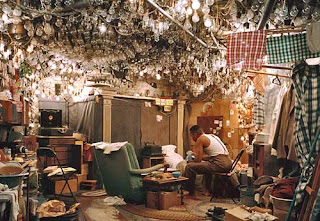Henry James is nature.
In re-reading Turn Of The Screw and Other Short Stories this past week, I have come to realize that no matter how ridiculous it may sound, the above statement is wholly true. My previous experience with Mr.James had come in the form of several short stories, mainly reading Daisy Miller:A Study eight times for five different classes. With each reading, I came to like Henry James less, as his prose to me seemed to resemble a mirror that fogged with condensation. The image I saw was always initially striking, but quickly became clouded in a haze of unnecessary detail and flowery language.
Upon delving into this small volume again last week, I made a promise to myself that I would not only finish each and every story, but that I would also forge several connections between Mr. James and the topics I am covering in my coursework. Imagine my surprise when everything in Washington Square somehow related back to the natural world. In what might be one of the most cosmopolitan transatlantic short stories of the 1800's, yet I was somehow able to tie James's sense of clouded human motive into a more primal tradition of patriarchal dominance in nature. It struck me about halfway through the story, in the middle of somesuch thought, exactly how much this quarter's Environment and Literature has course redefined my methods of reading the novel. Rather than seeking to solely focus on the human motives in a work, I have expanded my eye to the outer edges of the text, seeking any implicit or explicit connection between the characters and a larger presence outside their insulated thoughts. This connection seems to be flowing through most books- Henry James's romanticized Europe, Faulkner's skeletal trees, Thomas Pynchon's frosted visions of Italy in V. all indirectly expose an atuhorial connection to the natural world. Whether these moments are intentional is another matter altogether. That is what makes Eco-Criticism so fascinating. There is ambiguity, but within this ambiguity is a piece of the human consciousness that has evaded any sort of literary definition for countless generations. Critics working in within the Eco school are striving to lend shape to this abstract concept of nature, in everyone from Shakespeare to Delillo, from Milton to Amiri Baraka. Nature is relevant in almost every work, and it is about time for us to note it.
